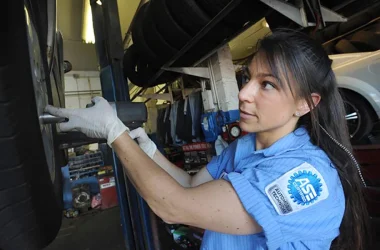While planning to buy a new car, you might set your heart on a particular car. But what if you have to import that car?
Importing a car may be associated to a few formalities and expenses which you must know about so as to make your importation smooth and hassle-free.
1. Regulations You Should Know
Importing a car comes with a series of processes that contains complex paperwork and other formalities which you should learn about before proceeding towards importing a car.
First and foremost, you should determine what type of import you are going to do. Secondly, depending on the car you want to import, you’ll have to go through some rules and pay some costs.
There are different rules for luxury and vintage cars. You should consider taking help of a company with trusted importing cars to Australia.
2. Can You Get a Loan?
The good news is that you can get a loan to import a car. However, you should be careful while considering your loan feature options and check the overall costs brought by importation.
Learn all the features and choose only those that will be flexible and convenient to pay over a period of time.
You can even consider buying one of the American imported cars for sale at Import Direct Car Sales and inquire about your financing options.
3. Tax and Duties
If the car you intend to buy is a luxury car having a price greater than $60,316, you’ll need to pay something called luxury car tax of 33%.
The type of car and its age will also decide the type of GST and duty you’ll have to pay. For a car older than 30 years, 10% GST and 5% duty fees are charged.
However, you should remember that classic cars, called collector’s items, don’t incur duty fees because they appreciate in value rather than depreciate.
Even motorbikes are exempt from duty, but still incur the 10% GST.
Image Courtesy: importdirectcarsales.com.au
4. Costs of Shipping and Customs
Shipping costs are not fixed. They will be determined by the type of car you’re going to import.
The length of time taken by shipping of car to reach the Australian coast also plays a role in deciding how much you’ll have to pay.
Shipping costs typically comprise of:
- Customs of both countries you’ll be exporting to and from
- Cost of quarantine inspection
- Port service charges
- Freight charges which include currency conversion rate
- Cleaning
5. Compliance Costs
Your car may need to be compliant with Australian regulations of being roadworthy. This means your car should be changed to meet the standards.
This can be in the form of, but not limited to:
- Testing of roadworthiness
- Re-gassing of air conditioner
- Removing gas headlights and replacing them with halogen
- Replacing brake pads
- Checking whether the car is left-handed or right-handed and changing accordingly
6. Registration and Insurance Costs
After you complete most of the documentation, you need to get the vehicle insured and pay for stamp duty. The insurance provider you choose will determine the cost of insurance.
Thus, you can compare deals and find the best one. Stamp duty will be determined by which state or territory you decide to import your car to.
All these costs and formalities will take time which you should consider, and you should study them carefully to make an informed decision.











